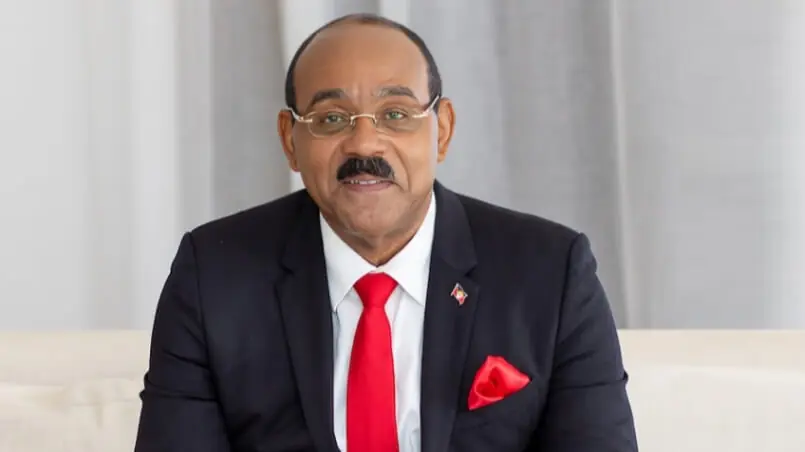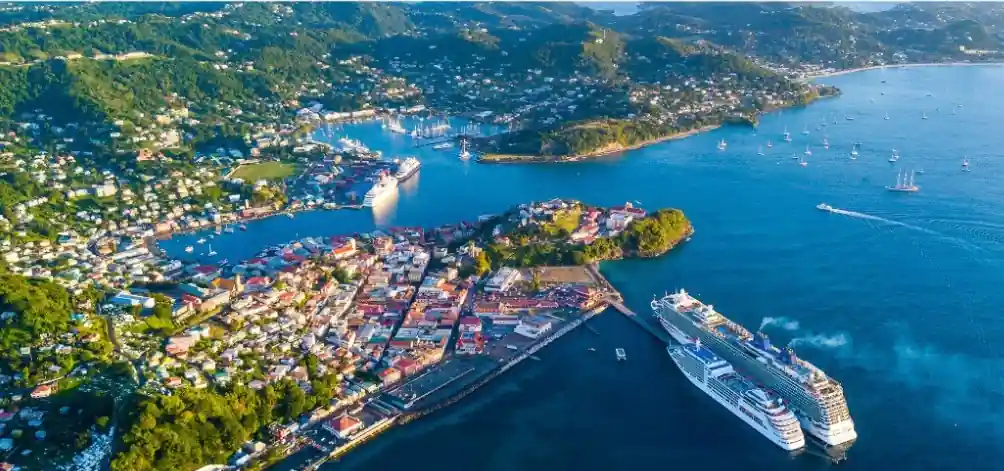Energy conglomerate ExxonMobil to explore regions off the shore of Essequibo
The United States based energy powerhouse ExxonMobil has stated that it has plans to explore the waters off the shores of Guyana’s Essequibo region for oil, adding another twist to the strained relationship between Guyana and Venezuela.
9th of February 2024

The United States based energy powerhouse ExxonMobil has stated that it has plans to explore the waters off the shores of Guyana’s Essequibo region for oil, adding another twist to the strained relationship between Guyana and Venezuela.
The two nations have been contesting over Guyana’s mineral-rich Essequibo region, which is seen as a highly valuable resource that is completely untapped and could greatly benefit the nation as it looks to secure its future.
Naturally, Venezuela has similar interests and has made attempts to wrest Essequibo from Guyana by reigniting a dispute that spans over a century.
The issue has forced the regional and international partners of both nations to get involved and has been a major point of discussion at forums such as the International Court of Justice (ICJ).
Guyana maintains the ability to grant oil concessions in the region and is the party that officially governs the region according to international law. The ICJ made it very clear recently that Venezuela does not have the right to annex the region or create conditions that could cause a conflict to erupt there.
The regional partners of both nations, from the Caribbean and Latin America, have made attempts to bring a semblance of stability to their relations through diplomatic dialogue.
While these attempts have forced both sides to assure each other that military action and an open conflict is not on the cards, both continue to hedge their bets through diplomatic channels and policies.
Alistair Routledge, the President of ExxonMobil in Guyana, stated the following with regards to the company’s interests in the region, “The Liza field, the last time I looked, takes you pretty close to that (equidistant) line. We plan to drill two exploration wells west of Liza and Payara. The Trumpet Fish and Redmoth exploration wells are planned more in the middle of the Stabroek Block during the course of this year so it’s not inhibiting that activity in our plans.”
ExxonMobil’s initial announcement that it had discovered oil off the shores of Guyana in 2015, prompted the President Nicholas Maduro led government of Venezuela to restructure its maritime boundaries, taking over the waters off the coast of the Guyanese counties of Essequibo, Demerara and Berbice.
Naturally, Guyana was displeased by this unilateral extension of Venezuela’s boundaries into what it considers it sovereign territory. Venezuela’s Navy went so far as to intercept two of Anadarko Petroleum and ExxonMobil’s seismic research vessels which were gathering data for the two American companies off the coast of Essequibo.
Alistair Routledge stated that ExxonMobil had planned on spending US$60 to $70 million on each of the exploration wells and has considered that the costs could escalate further if stem drill tests need to be conducted and more data needs to be collected.
He also stated that Venezuela’s claim that Essequibo belongs to it and the subsequent implications have made many parties in the region nervous. The Guyana-Venezuela border dispute has become a major point of concern for many firms and organisations that have been looking to collaborate with Guyana to help the nation avail the benefits of the resources in the region.
Regardless of the claims made by Venezuela, Routledge firmly believes that ExxonMobil’s agreement with Guyana is both legal and binding.
Routledge said the following in a statement, “ExxonMobil has a comfort where we believe the contract which we have with the country is valid under the local law but also under international law we have valid rights to the blocks in which we are participating.”
He has also shown support for the Argle Agreement, which was established between Guyana and Venezuela when President Irfaan Ali and President Nicholas Maduro were guided to conduct peace talks by their regional partners who brough them together in St Vincent and the Grenadines.
One of the parameters set with in the remit of the agreement is that both Guyana and Venezuela will refrain from using force or issuing threats against each other.
While the agreement is meant to bring a certain degree of stability to the fraught diplomatic relations between the two neighboring nations, recent developments between them have made it evident that the situation is far from ideal.
Routledge made it a point to appreciate the improvements made to the defense and security partnership between Guyana and the United States, as they continue to talk about low carbon emissions and the supply of energy from the region to the rest of the world.
He added that, “The collaboration that we are seeing for Guyana with other countries on the military front as well as on the diplomatic and economic front reflects that and so I think it’s a healthy thing.”
The depth of the relationship that the United States and Guyana are now maintaining was made obvious by US 12th Air Force (Air Forces Southern) Commander, Major General Evan L. Pettus’s visit to Guyana, which gave him the opportunity to converse with high-ranking officials in the Guyana Defense Force and the Government of Guyana.
Their discussions were aimed at enhancing Guyana’s air domain awareness and a collaboration with the United States to improve the nation’s air security apparatus in terms of equipment and practices to ensure that Guyana can maintain its sovereignty and national security.
It is yet to be seen how Venezuela will respond to the latest development regarding ExxonMobil’s agreement with the Government of Guyana but one can safely assume that the Nicholas Maduro government will see it as an attempt to negate its claim on Essequibo and other regions of Guyana which are of great significance in terms of resource harvesting and energy production.
It will be interesting to see how the two nations will approach the scenario and possibly diffuse the situation if matters begin to get out of hand.
The fact that the United States seems to have Guyana’s back in this regional security contest is definitely something that irks Venezuela’s government but considerations might have to be made as Venezuela has seen the United States reinstate sanctions after the Maduro government banned opposition leader Machado’s candidacy for the presidential elections set to be held in the nation in the latter half of 2024.
Latest
- Guyana’s Linden to Mabura Road Project Nears Completion, Connecting Country to Northern Brazil
-
Trinidad: Unidentified man found dead on Uriah Butler Highway in suspected hit-and-run -
Tuberculosis cases reported at Edward P. Yorke High School in Belize City -
Sugar Mas Carnival boosts St Kitts and Nevis economy to $29.5m -
Jamaican Designer Rachel Scott Debuts Fall 2026 Diotima Collection at New York Fashion Week
Related Articles


1st of December 2024

9th of December 2024

22nd of November 2024

28th of November 2024

26th of November 2024

25th of November 2024

24th of November 2024
